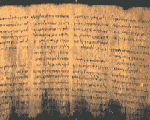




The Convention on the Physical Protection of Nuclear Material provides for certain levels of physical protection during international transport of nuclear material. It also establishes a general framework for cooperation among states in the protection, recovery, and return of stolen nuclear material. Further, the Convention lists certain serious offenses involving nuclear material which state parties are to make punishable and for which offenders shall be subject to a system of extradition or submission for prosecution.This Convention resulted from a U.S. initiative in 1974, which was subsequently endorsed at the 1975 Non-Proliferation Treaty review conference. Two provisions of the Nuclear Non-Proliferation Act of 1978 call for negotiation of such a convention. Negotiation of the Convention had begun in 1977.
The Convention was adopted at a meeting of government representatives in Vienna on October 26, 1979, and signed by the United States on March 3, 1980. The U.S. Senate provided its advice and consent for the ratification of the Convention on July 30, 1981, by a vote of 98-0. The President ratified it September 4, 1981.
Legislation to implement the Convention was enacted October 18, 1982. The United States deposited its instrument of ratification December 13, 1982. The Convention entered into force February 8, 1987, in accordance with the provision for entry into force 30 days after the deposit of the instrument of ratification by the 21st State, which was Switzerland.
